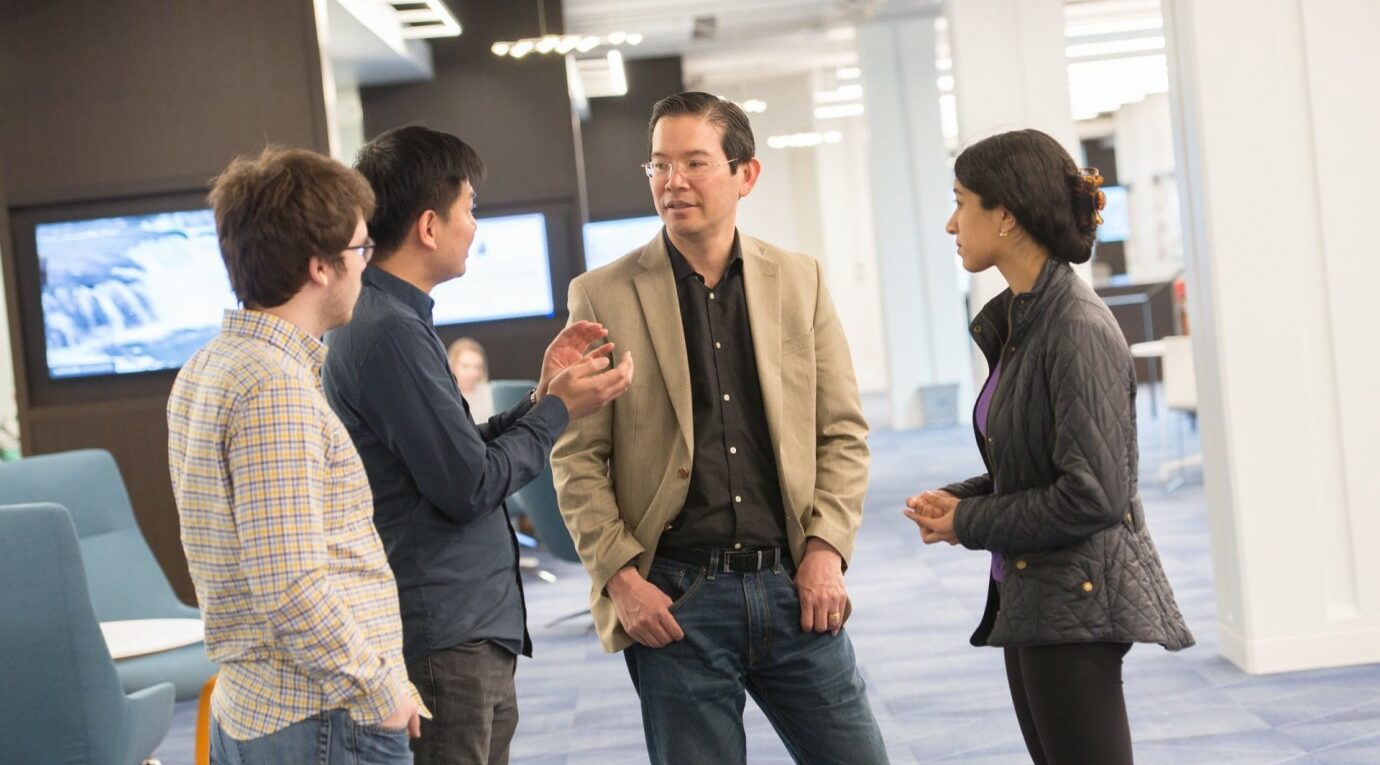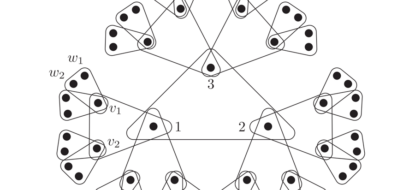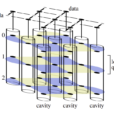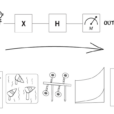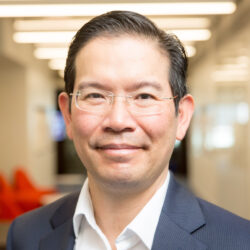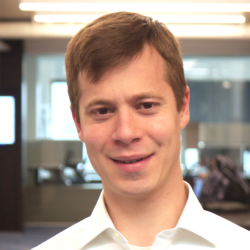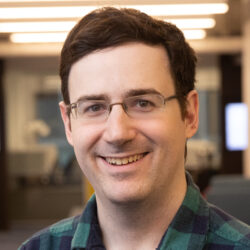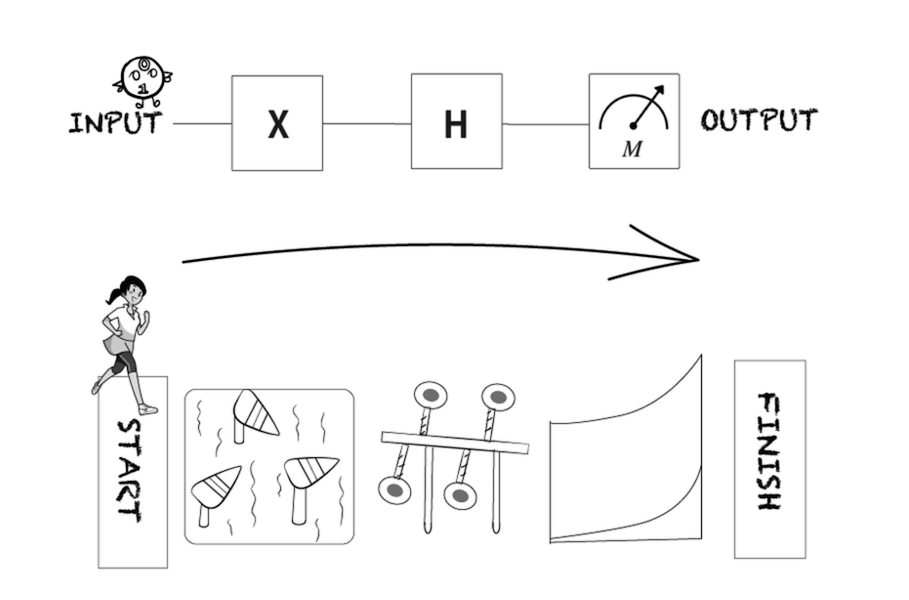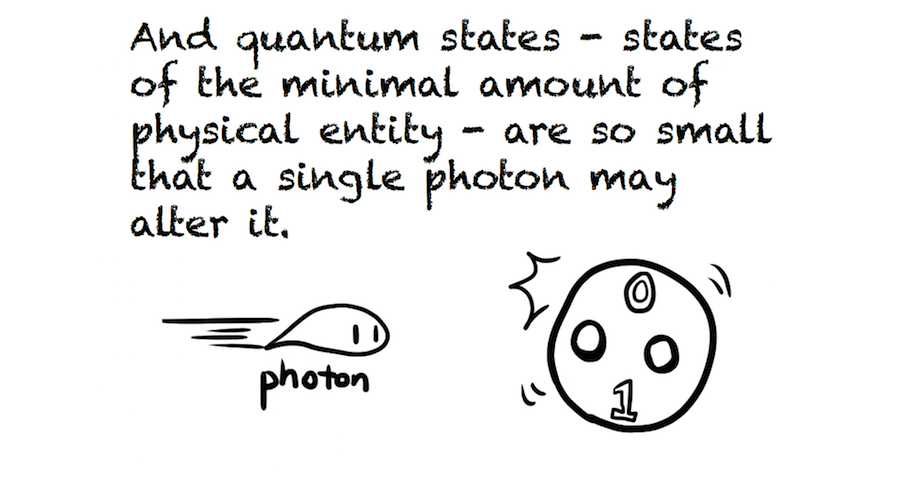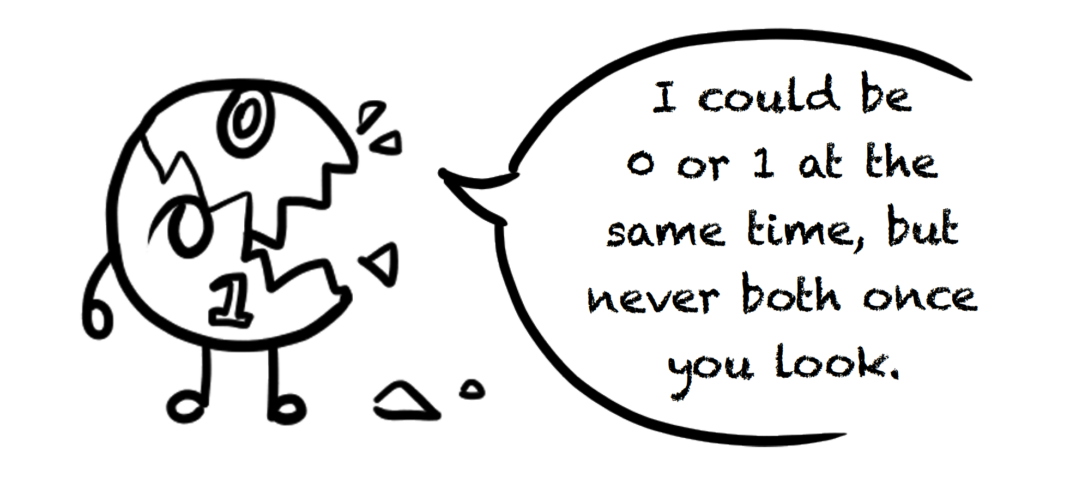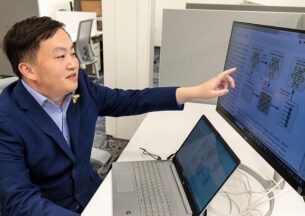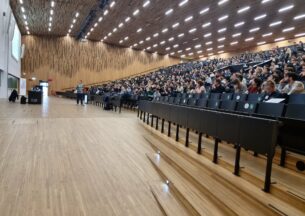Quantum computing promises to be the next paradigm of computing, harnessing the principles of quantum physics to perform computations and conduct tasks impossible for classical architectures. Today, researchers in academia and industry rapidly advance the field by designing new hardware, software, and algorithms that bring quantum computers closer to their great potential for unlocking new knowledge in physics, chemistry, cryptography, and other fields.
UChicago CS boasts many faculty, research groups, and students engaged at the frontier of this groundbreaking technology, exploring new ways of programming, designing, and teaching about quantum computers. The Enabling Practical-Scale Quantum Computing (EPiQC) collaboration, funded by an NSF Expedition in Computing grant and led by UChicago CS Professor Fred Chong, advances the abilities of near-term quantum computers. The department also benefits from deep connections with the Chicago Quantum Exchange, the National Quantum Information Science Research Centers at Argonne and Fermilab, and companies such as IBM and Intel.
Enabling Practical-scale Quantum Computing (EPiQC)

Launched in 2018 with a $10 million “Expeditions in Computing” grant from the National Science Foundation, the multi-institutional EPiQC collaboration seeks to narrow the gap to quantum computers capable of unprecedented feats. Quantum machines may soon be capable of performing calculations in chemistry, physics, and other fields that are extremely difficult or even impossible for today’s computers. The EPiQC mission is to develop new algorithms, software, and machine designs tailored to key properties of quantum device technologies with 100 to 1000 quantum bits — the scale researchers expect to reach over the next decade.
EPiQC is led by Fred Chong, Seymour Goodman Professor of Computer Science at UChicago, and includes collaborators from Duke, MIT, UCSB, Princeton, Argonne, Carnegie Mellon, and Georgia Tech. Faculty and student researchers in EPiQc have received numerous conference best paper and IEEE Top Picks awards, fellowships in industry, and started businesses in the emerging quantum sector. The collaboration also lays the foundation for tomorrow’s quantum computing experts, with innovative curricula, online courses, and museum exhibits reaching students from kindergarten through graduate school.
Designing the Future of Quantum Computing
Fred Chong
- Seymour Goodman Professor of Computer Science
- Lead Principal Investigator, EPiQC
- Chief Scientist for Quantum Software, ColdQuanta
Fred Chong is the Seymour Goodman Professor in the Department of Computer Science at the University of Chicago and the Chief Scientist for Quantum Software at ColdQuanta. He is also Lead Principal Investigator for the EPiQC Project (Enabling Practical-scale Quantum Computing), an NSF Expedition in Computing. Chong is a member of the National Quantum Advisory Committee (NQIAC) which provides advice to the President and Secretary of Energy on the National Quantum Initiative Program. In 2020, he co-founded Super.tech, a quantum software company, which was acquired by ColdQuanta in 2022. Chong received his Ph.D. from MIT in 1996 and was a faculty member and Chancellor’s fellow at UC Davis from 1997-2005. He was also a Professor of Computer Science, Director of Computer Engineering, and Director of the Greenscale Center for Energy-Efficient Computing at UCSB from 2005-2015. He is a recipient of the NSF CAREER award, the Intel Outstanding Researcher Award, and 13 best paper awards. His research interests include emerging technologies for computing, quantum computing, multicore and embedded architectures, computer security, and sustainable computing. Prof. Chong has been funded by NSF, DOE, Intel, Google, AFOSR, IARPA, DARPA, Mitsubishi, Altera and Xilinx. He has led or co-led over $40M in awarded research, and been co-PI on an additional $41M.
William Fefferman
- Associate Professor of Computer Science
I am an Associate Professor in the computer science department at the University of Chicago. Previously, I held research positions at the University of California at Berkeley, advised by Umesh Vazirani, and in QuICS, at the University of Maryland/NIST. I received my Ph.D. in computer science in the Department of Computer and Mathematical Sciences and the Institute for Quantum Information and Matter at Caltech, co-advised by Alexei Kitaev and Chris Umans.
Diana Franklin
- Associate Professor of Computer Science
Diana Franklin is a Research Associate Professor in Computer Science and Director of Computer Science Education at UChicago STEM Education. She leads the CANON (Computing for ANyONe) research labs, currently consisting of four projects involving computer science education involving students ranging from preK through university. She is the lead PI for quantum computing education for EPiQC, an NSF expedition in computing. Her research agenda explores how to create curriculum and computing environments in ways that reach broad audiences.
Robert Rand
- Assistant Professor of Computer Science
I am an Assistant Professor of Computer Science, part of the Programming Languages Research Group and the Chicago Quantum Exchange. My main interest is in applying techniques from programming languages and formal verification to the domain of quantum computation.



